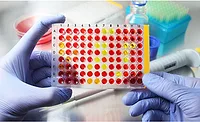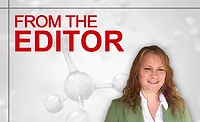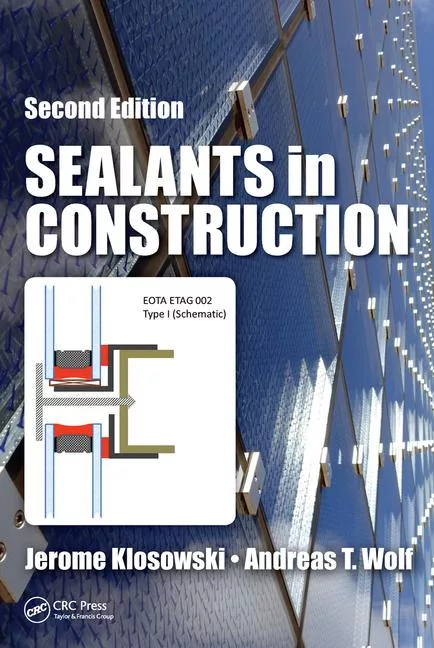What’s Next in Tapes: A Look at Industry Trends
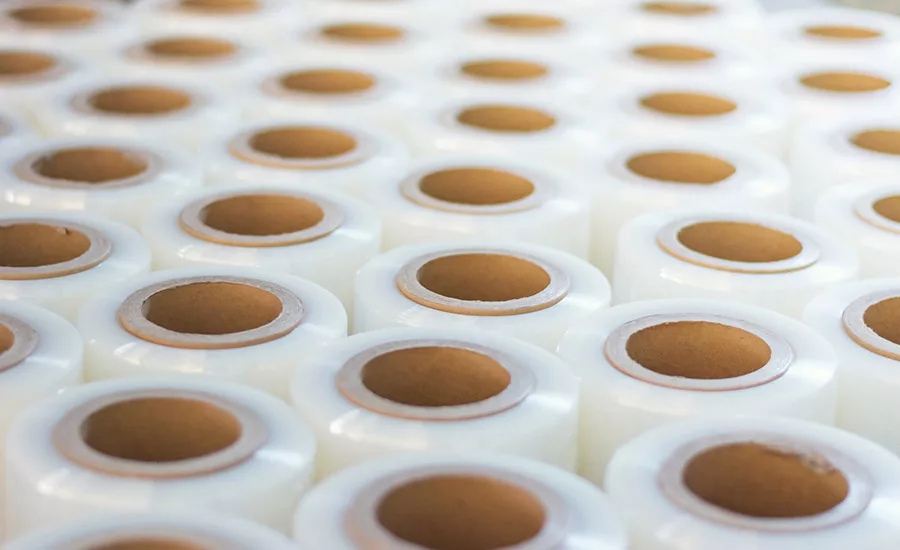
Zrenjaninac / iStock / Getty Images Plus
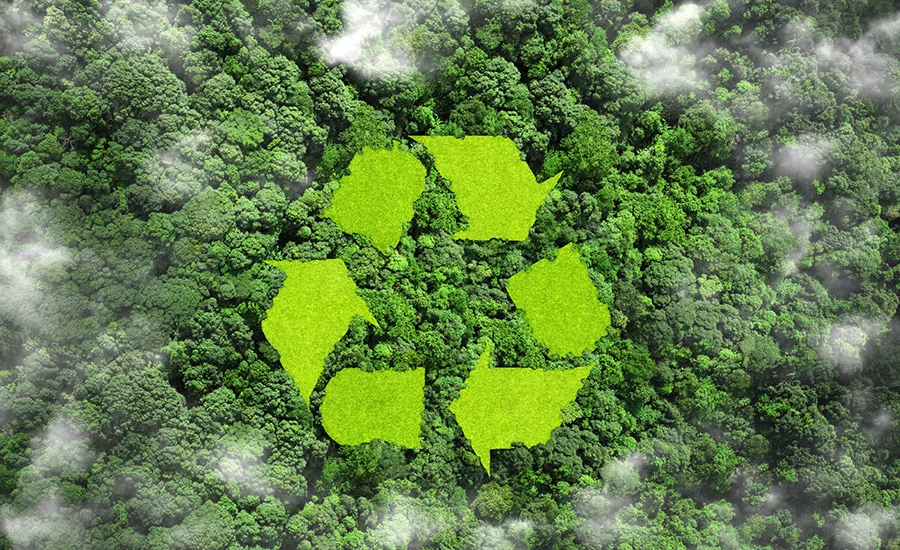
pcess609 / iStock / Getty Images Plus
The State of Adhesives
With growing awareness of environmental issues and stringent regulations, manufacturers are increasing their focus on balancing performance and sustainability in tape formulations. Historically, packaging tapes prioritized adhesive strength and durability, often at the expense of sustainability. Recent advancements have allowed manufacturers to develop tapes that maintain strong adhesion while incorporating eco-friendly materials.
One significant innovation is the introduction of sustainable packaging tapes. These tapes are designed to provide the same level of sealing performance as film-based options but with a reduced environmental impact. Brands are now incorporating recycled and biodegradable materials in tape production to align with global sustainability goals.
Key materials driving these advancements include a ranged percentage of post-consumer recycled (PCR) polyester, commonly derived from PET bottles. This material helps reduce plastic waste while ensuring that the tape maintains its required tensile strength and adhesive properties. Other eco-conscious formulations include paper-based tapes and biobased adhesives, which support circular economy initiatives while maintaining an effective sealing.
Modern consumers favor brands that prioritize sustainability, making it essential for businesses to integrate green solutions into their packaging processes. Regulatory bodies and consumer demand are also influencing these changes. As environmental regulations become stricter, companies must adopt sustainable packaging solutions to comply with industry standards.
What’s Driving Change in Adhesives and Packaging
Innovations in adhesives and packaging are being driven by a combination of cost-efficiency demands and increasing environmental interests.
Companies are constantly seeking ways to lower material costs while improving packaging performance. This has led to advancements in high-performance adhesives that provide stronger bonds with less material, reducing overall consumption and waste. Additionally, the push for sustainability is reshaping the industry as businesses seek eco-friendly solutions such as recyclable adhesives, biodegradable materials, and solvent-free formulations. Stricter environmental regulations and corporate sustainability initiatives are accelerating the shift toward greener alternatives, compelling manufacturers to innovate.
At the same time, market shifts and evolving consumer expectations are influencing packaging trends. The rise of e-commerce has increased the demand for durable, tamper-resistant and lightweight packaging that ensures product protection while minimizing shipping costs. This demand is driving the adoption of compostable films, plant-based adhesives, and reduced-plastic packaging. Finally, smart packaging technologies, such as resealable adhesives and recyclable tamper-evident seals, are gaining momentum as businesses seek to enhance convenience and sustainability.
Sustainable and Secure Packaging Tapes
Environmental concerns are a top priority for many companies, fueling the growing demand for sustainable packaging solutions. Traditional film-based tapes are often made from plastic, such as PVC, and pose challenges from a recycling standpoint. Some manufacturers are shifting away from virgin plastic, creating tapes with recyclable materials that include a ranged percentage of post-consumer recycled (PCR) polyester.
Manufacturers are also innovating new types of tapes that are recyclable and environmentally friendly, like paper-based tapes, while maintaining high performance standards. For example, many are recognizing third-party certifications from Western Michigan University’s Pilot Plants program dedicated to testing and awarding certifications to fiber-based products that are recycled instead of sent to landfills. Forest Stewardship Council (FSC) certification, meaning the product is made from responsibly sourced materials that come from forests meeting environmental and social standards, is also being utilized. Shurtape recently released two new packaging paper tape products that are both FSC certified: CR 400 Performance Grade Curbside Recyclable Paper Packaging Tape1 and rHP 100 General Purpose Grade 90% PCR rPET Hot Melt Packaging Tape2.
Ongoing certifications not only guarantee quality and reliability but also facilitate the transition toward more environmentally friendly alternatives. This shift has put pressure on the packaging industry to adopt greener solutions, making recyclable tape a more desirable offering.
The Rise of Automated Case Sealing Systems
While sustainability is a priority, efficiency remains crucial. Automated case sealing systems are revolutionizing the way packaging is handled, ensuring that every roll of tape is used in its entirety. These systems are designed to streamline packaging operations, minimize waste, and enhance productivity in warehouse and manufacturing environments.
Traditional manual taping methods are prone to inefficiency, including excess tape usage and inconsistent application. Automated case sealers eliminate these challenges by precisely dispensing the necessary amount of tape for each package. This not only reduces material waste, but it also lowers costs associated with overuse.
Automated systems offer other significant advantages, including the ability to enhance speed and accuracy. In high-volume packaging environments, manually applying tape can slow down operations and is more subject to human error and even injuries. Automated systems increase packaging throughput by sealing packages faster and more consistently without the risk of harm associated with manual application.
The reduction of product waste is another large benefit. Unfortunately, material waste is common in manufacturing lines, with tape being a main culprit. In fact, 10 to 20 percent tape waste — caused by tear-outs and dispensing errors — is accepted as standard. Systems like the ShurSEAL® Solution3 optimize tape usage, ensuring a secure seal while minimizing waste and helping reduce the carbon footprint. The ShurSEAL Solution4 integrates high-performance adhesive technology with sustainable materials, making it a preferred choice for businesses looking to reduce their environmental footprint without compromising packaging integrity.
Finally, many automated case sealing systems now integrate smart technology. Some machines now feature sensors and AI-driven controls that optimize tape usage based on box dimensions and sealing requirements. These advancements help drive greater sustainability by minimizing tape waste and reducing overall packaging material consumption. As automation technology continues to evolve, the integration of smart case-sealing solutions will likely become a standard.
The Future of Tape in an Evolving Industry
The tape industry is at a turning point, where sustainability and efficiency are shaping the future of adhesives and packaging solutions. The future is about much more than sticking things together. It is about creating solutions that enhance efficiency, reduce environmental impact, and meet the needs of modern industries.
The growing adoption of recyclable tapes offers an environmentally friendly alternative to traditional plastic-based adhesives, helping reduce waste and support sustainability initiatives. Simultaneously, automated case sealing systems are transforming packaging operations by improving precision, minimizing material waste, cutting costs, and enhancing productivity.
As businesses navigate the challenge of balancing sustainability with operational efficiency, embracing these innovations will prove essential to maintaining a competitive edge. Investing in eco-friendly materials and automation technologies not only reduces environmental impact, but also optimizes packaging performance, creating a win-win scenario for companies and consumers alike.
The industry’s future hinges on continuous innovation, where advancements in materials and automation work in harmony to meet evolving market demands. By prioritizing both efficiency and sustainability, businesses can drive progress while contributing to a more responsible and resource-efficient packaging landscape.
Learn more about Shurtape at www.shurtape.com.
References
1. Shurtape CR 400 Performance Grade Paper Packaging Tape: https://www.shurtape.com/products/cr-400/
2. Shurtape rHP 100 General Purpose Grade 90% PCR rPET Hot Melt Packaging Tape: https://www.shurtape.com/products/rhp-100/
3. Shurtape ShurSEAL Solution: https://www.shurtape.com/packaging/shurseal/
4. Shurtape ShurSEAL Solution: https://www.shurtape.com/packaging/shurseal/Looking for a reprint of this article?
From high-res PDFs to custom plaques, order your copy today!



